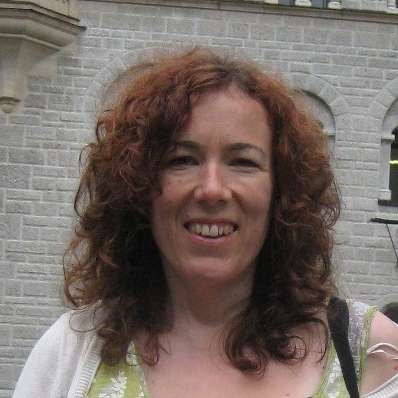The members of the Belcea Quartet met at the Royal College of Music, but hail from across Europe - France, Romania, Poland and Switzerland, making me wonder which common language they use for working. Whatever they may speak, however, it was immediately clear from the opening phrases of this evening’s concert of Beethoven quartets that these four players enjoy an intensely powerful shared musical language, with an incredible level of communication between each other and with the audience. They immediately drew us right into the heart of Beethoven’s very personal music, as they took us on an introductory guide through his string quartet writing.
String Quartet no. 3, Op.18 was a fitting choice to open the Belcea’s cycle of Beethoven quartets, as it may in fact have been the first that he wrote. In style and structure, it clearly owes a great deal to Haydn, until the complicated syncopated passages of the final movement give a hint of the heights to which Beethoven was later to rise in his development of the art of the string quartet. The jokey ending though is pure Haydn, and the Belcea Quartet made the most of it, playing for laughs after a beautiful performance with wonderfully articulated faster passages, and clear fluid playing. Throughout the concert, there was never any harshness, even in the more forceful parts of the later quartets and the quietest passages were mesmerising, almost vanishing at times but never with any loss of that beautiful silky tone.
The far more serious Quartet no 10, Op.74, also ends somewhat abruptly, especially in comparison to the long drawn out cadences of the symphonies that Beethoven was writing at about the same time, but apart from the odd hints of classical motifs we’re now into serious Beethoven quartet territory, with grand heroic statements and thrilling momentum. Despite the magnificent opus 130 that was to follow, it was this work, I felt, which brought us some of the Belcea Quartet’s most exciting playing of the evening. In the excellent acoustic of the Sage Gateshead’s Hall 2, every single note of the pizzicato arpeggios in the first movement, that give the work its nickname “The Harp”, pinged out, clear and brittle. The Presto was a daredevil delight, at times almost feeling as though it was teetering on the edge of a cliff, before regaining composure.
And so, onto String Quartet no. 13, Op.130, the work of a man totally deaf, utterly lonely and nearing the end of his life, but which at times bursts out with a vivacious energy that the Belcea Quartet exploited to the full, most obviously in the blink-and-you-miss-it second movement, but also in the lilting dance of the Alla danza Tedesca . But the heart of the work, particularly in the version performed this evening, is the heartbreaking Cavatina, a song of lament that breaks down in sobs before closing with a restatement of the melody over which Beethoven wrote the word beklemmt - “oppressed”. In the hands of the youthful Belcea players, it was carefully devoid of any over-indulgence, a wistful report of someone else’s misery.
Beethoven’s original final movement was the momentous and complex Grosse Fugue, but after objections by players and audiences alike to its sheer difficulty, Beethoven was persuaded to write a substitute, a Presto so cheerful as to be almost tongue-in-cheek. This was the version the Belcea Quartet performed with such spirit this evening, but we are promised a repeat performance in the summer, this time with the Grosse Fugue, which will no doubt be a wonderful and fitting climax to close the Belcea Quartet’s cycle of the complete Beethoven quartets.


